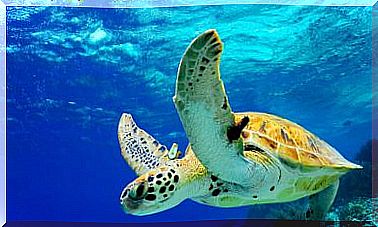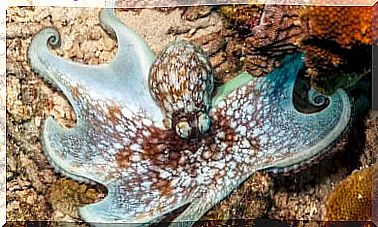Octopus Intelligence Put To The Test
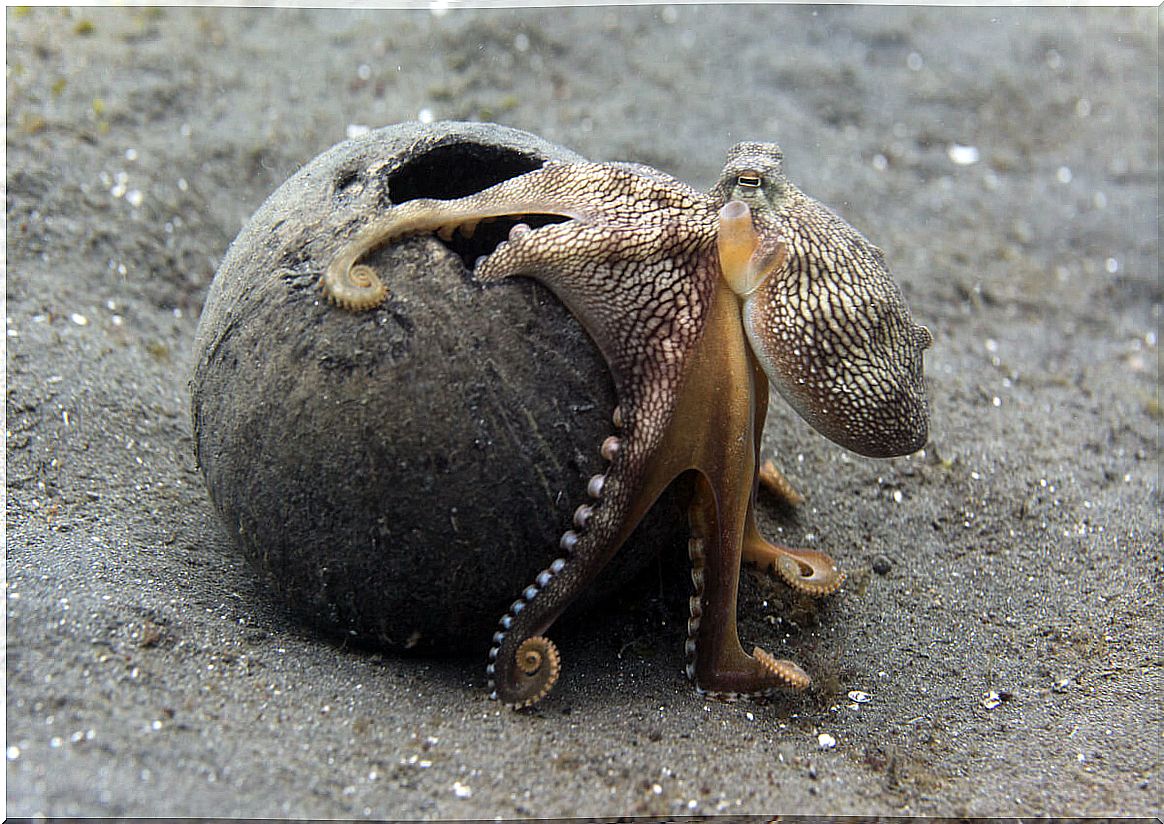
Ever since the world famous octopus Paul – a cephalopod that was used to predict the results of the German national team in the 2010 World Cup – the intelligence of octopuses has become popular knowledge.
Still, ethology does not base animal understanding on viral beliefs or videos. If something is to be demonstrated, it must be done under strict conditions and controllable parameters. Find out here how the intelligence of octopuses has been put to the test by experts in various experiments.
The curious world of octopuses
Before diving into the world of the intelligence of these cephalopods and to give you an idea of how peculiar octopuses are, we present a few curiosities about them:
- Its central nervous system is not only located in its head, but this animal has a large group of neurons in each tentacle, possessing a certain autonomy and decision-making capacity. With the tentacles, octopuses can also smell and taste what they touch.
- These animals can move the suction cups of their tentacles individually, just like we can our fingers. They usually have around 1600 suction cups in total.
- They can modify their DNA at will to adapt to new situations.
- They get bored easily and in captivity you have to provide them with a lot of environmental enrichment so that they do not develop behavioral disorders.
- Octopuses can modify the color spectrum of their vision to suit the depth at which they swim. This answers the question of how they know what color to camouflage themselves if they are colorblind animals.
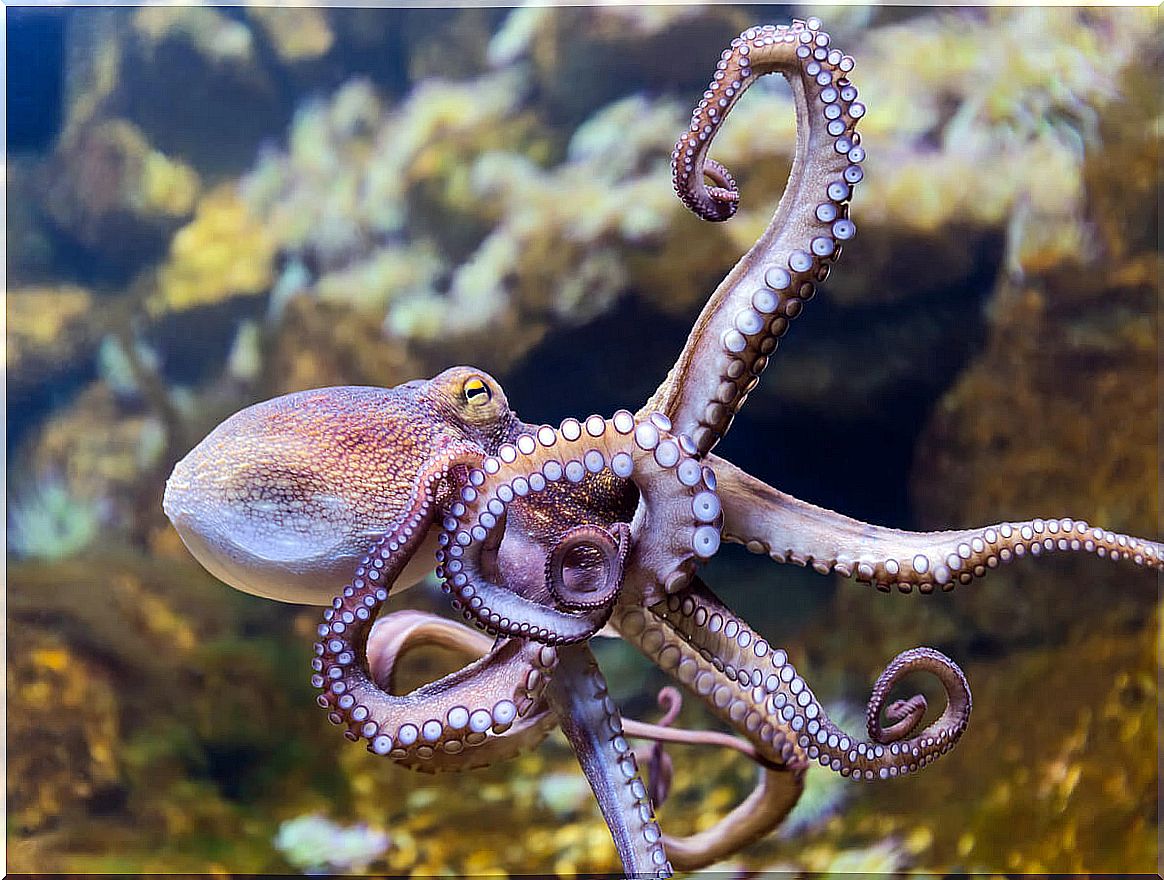
How is the intelligence of octopuses tested?
Although some researchers have done experiments in captivity, most of the studies with octopuses come from observation in their habitat. Here are some particularly relevant examples.
The octopus that broke the experiment
In various portals you can see a video in which an octopus is challenged to get a prize from inside a bottle. The aim of the experiment was for the animal to unscrew the cap, as octopuses have already been shown to be capable of doing.
Still, this issue gave the solution one more twist: he managed to push the nipple into the bottle, which allowed him to finally reach his prize. The experts still do not know how he managed to apply the necessary pressure, because by trying it themselves they were not able to achieve what the octopus had done.
Many times, the behavior of octopuses in captivity is more surprising than the experiments themselves. We show you some relevant data regarding the subject:
- The octopuses are aware that they are trapped and try to escape: Inky, an octopus that escaped from the National Aquarium of New Zealand, slipped through a crack and crawled into a pipe that overlooked the Pacific Ocean. He was not seen again.
- They distinguish their keepers and have preferences: in a laboratory in New Zealand, one of the octopuses seemed to have a mania for one of their keepers, at whom he threw jets of water every time she passed by.
- They modify their environment: accustomed to the low underwater light, they do not like the strong lights of the aquariums. Two octopuses forced their release by shooting jets of water at the fluorescent lights to turn them off with a short circuit. When repair expenses stopped offsetting, these animals were released.
The ecological intelligence of octopuses
The ecological intelligence hypothesis postulates that certain animal species have developed their intelligence throughout evolution based on the difficulty of finding food.
While some species have food available most of the year — such as grazing herbivores — other animals must know where to look for it and when it matures, such as frugivores. Some animal species plan for the future based on this knowledge.
Well, the scientist Piero Amodio affirms that, due to the loss of the shell that they suffered millions of years ago, the difficulty in finding food and shelter put the intelligence of the octopuses to the test, forcing them to be much more creative to survive.
As a final note, we show you some of the discoveries that have been made by observing octopuses in the wild:
- These animals are capable of using tools: Researcher Finn and his team recorded octopuses that used empty shells or even a coconut shell to hide from predators or hunt down passing prey.
- They think ahead: these animals not only hid in shells or coconuts, but when they came out of hiding, they took it with them for later use.
- They have a good memory: octopuses remember places where they have felt safe and return to where the game is abundant.
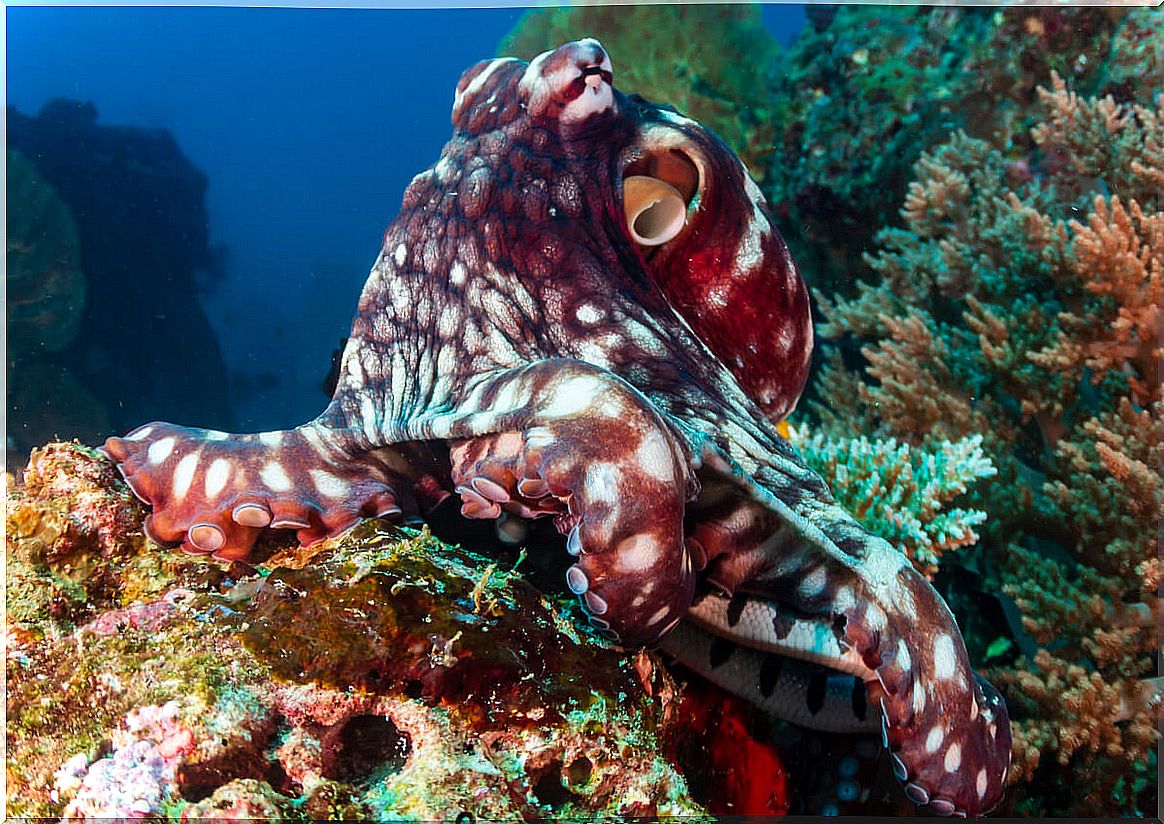
As you may have seen, the intelligence of octopuses has been put to the test on multiple occasions with fascinating results. Without a doubt, these charismatic cephalopods will never cease to amaze us.
